Tomos, schism and strengthened faith: 8 pinnacle events of 2019
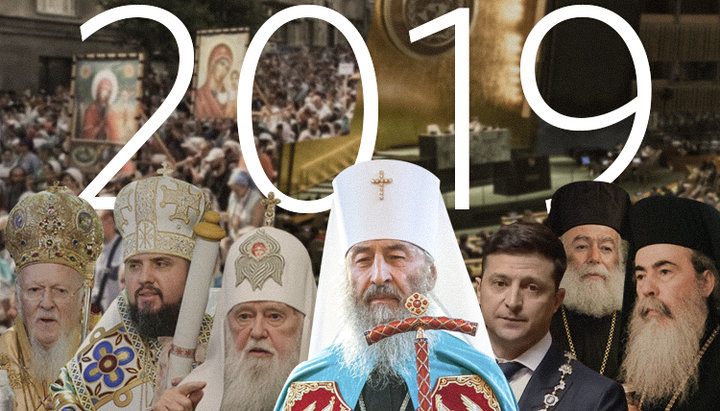
What has most affected the Orthodox life of Ukraine in the past year and will continue to influence in the coming year.
The UOJ summarizes the outgoing year and offers a selection of events that, in our opinion, were the most important for the Church – with a plus and minus sign. We will list them in chronological order and then highlight what will have the greatest impact on further developments.
1. Tomos and Tomos-Tour
The long-awaited Tomos on the “constitution” (as its supporters put it) of the Holy Church of Ukraine or the Orthodox Church of Ukraine (OCU) was signed on January 5, 2019 and handed over on January 6. Both names of the new structure are available in the Tomos.
The document on the beautiful parchment was presented to the head of the OCU, Epiphanius Dumenko, and to the then President of Ukraine, Petro Poroshenko, in Istanbul at St. George's Cathedral. Poroshenko was personally noted in the Tomos as its direct recipient.
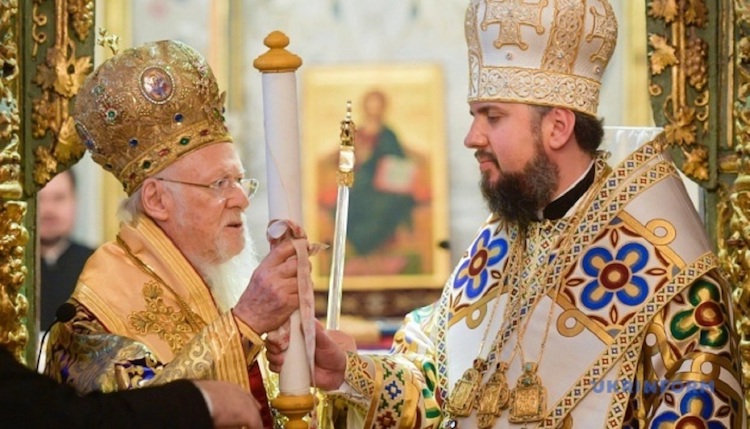
The arrival of the Tomos was positioned as a historical milestone for Ukraine; however, according to the opinion poll conducted by the Rating group and published on December 23, 2019, it was not included at all among the major events of the year.
Immediately after the Christmas holidays, the Tomos was taken to the most populated cities of Ukraine as a demonstration of the main achievement of Poroshenko as President.
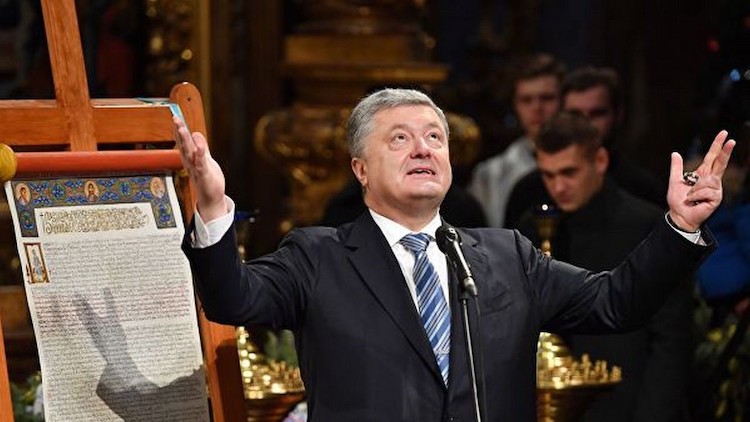
The campaign voyage, which the people called the Tomos Tour, was supposed to help Poroshenko to be reelected for a second presidential term, but did not help.
2. Election of Vladimir Zelensky as President
On April 21, 2019, the second round of the presidential election took place, in which Vladimir Zelensky won a landslide victory over Petro Poroshenko.
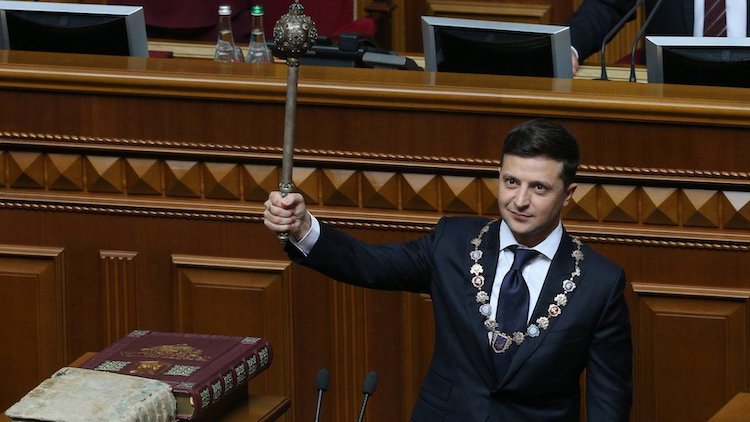
For the first time in the history of Ukraine, a candidate in the presidential race won by a margin of almost 50% of the vote. 73.22% of voters voted for Zelensky, 24.45% for Poroshenko.
This devastating defeat, inflicted on Petro Poroshenko not even by a politician but by a professional comedian, means nothing more than a point-blank rejection by the citizens of Ukraine of all the policies pursued by the former president.
Opinion polls showed that the Ukrainian people perceived the Tomos Tour as an awkward attempt to cover up Poroshenko’s failures in all areas of domestic and foreign policy.
With the presidency of Zelensky, the Ukrainian Orthodox Church associates hope for the restoration of legality in the religious sphere and the cessation of officials' interference in the internal affairs of religious organizations. Whether these hopes will come true or not – time will tell, but for now the state sends very controversial signals in this regard.
3. The withdrawal of Filaret Denisenko from the OCU
The creators of the OCU initially had irreconcilable contradictions. However, there was an agreement not to reveal them publicly until the presidential election. The elections were held, the inauguration of the new President took place, and on June 11, 2019 Filaret Denisenko announced his intention to convene a “local Council” for the restoration of the UOC-KP at the meeting of the intelligentsia he had organized.
On June 20, 2019, this “Council” was held; however, it was extremely small. Despite this, Filaret announced his withdrawal from the OCU and the restoration of the UOC-KP. He substantiated it with the fact that the OCU is not at all an autocephalous Church but a structure subordinate to the Patriarchate of Constantinople.

On June 25, 2019, Filaret said, “We are dissociating ourselves from this so-called OCU. <...> Their decrees do not concern us."
He was supported by quite a few supporters, but such a demarche caused rather a big scandal both in Ukraine and abroad.
4. St. Patron’s Day of His Beatitude Onuphry
On June 25, festivities were held in Kiev in honor of the Monk Onuphry the Great, the heavenly patron saint of the UOC Primate, His Beatitude Metropolitan Onuphry.
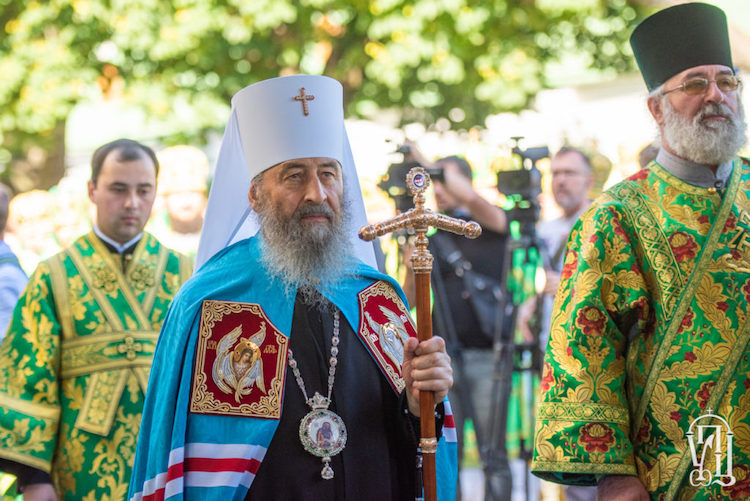
In conditions when the representatives of the Patriarchate of Constantinople and the US Department of State exert unprecedented pressure on the Local Orthodox Churches in recognizing the OCU, representatives of 11 Churches came to congratulate His Beatitude Onuphry. Not only words of support for the UOC and its Primate were spoken up in their statements, but also the fact of persecution of the UOC from the state and national radicals.
5. The Great Cross Procession
Traditionally, during the celebration of the memory of the Holy Equal-to-the-Apostles Prince Vladimir and the anniversary of the Baptism of Rus, both the UOC and schismatic organizations held religious processions.
For the OCU, this was the first religious procession after the granting of the Tomos, which was to show everyone how successful Constantinople was in the “unification” of Ukrainian Orthodoxy, which was declared as a final destination of all Phanar’s efforts. The result was a failure, even bigger than the outcome of Poroshenko’s presidential campaign.
The OCU estimated the number of participants in its religious procession at 20,000. Judging by the photos, the figure is clearly overestimated.
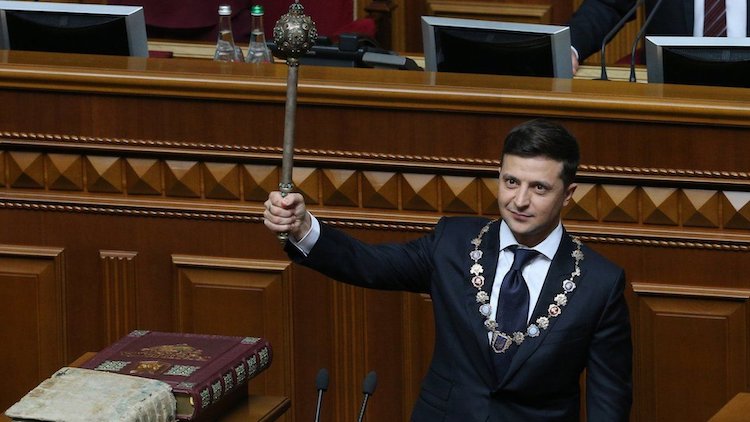
The Great Cross Procession of the UOC from St. Vladimir Hill to the Kiev Pechersk Lavra gathered up to 300,000 believers. This is more than ten times as much as even the most overstated estimates of the number of participants in the OCU-held event.

This religious procession clearly demonstrated that the Ukrainian Orthodox do not succumb to either state pressure or crafty fabrications of Phanariots. The persecution launched against the Church consolidated even more around Her Primate, His Beatitude Metropolitan Onuphry. For all the years of the Great Cross Procession, more and more people have been joining it.
6. Recognition of the OCU by the Greek and Alexandrian Churches
On October 12, the Council of Bishops of the Greek Orthodox Church recognized the OCU. However, this recognition looked rather cunning. The hierarchs did not directly recognize the OCU but recognized the right of Patriarch Bartholomew of Constantinople to grant autocephaly to the OCU and the right of the Primate of the Church of Greece, Archbishop Ieronymos II, to recognize the OCU. It implied that all responsibility in case of emergency could be shifted personally to Archbishop Ieronymos.
In the Church of Alexandria, recognition was even more rude and cynical. On November 8, the Patriarch of Alexandria and all of Africa, Theodore II, commemorated Epiphanius Dumenko without any conciliar decision of the episcopate on this issue.
Of particular cynicism to the act of Patriarch Theodore II is the fact that he was one of the most zealous supporters of the UOC and expressed active support for Metropolitan Onuphry.
In October 2018, in the midst of Phanar’s anti-canonical efforts to create a local church, he came to Odessa and said, “We are together with the canonical Ukrainian Orthodox Church, with those who want Orthodox unity, <...> stay faithful to the canonical Church.”
It is not surprising that the recognition of the OCU by the Patriarch of Alexandria was considered by many believers and hierarchs as the most outright betrayal akin to the kiss of Judah.
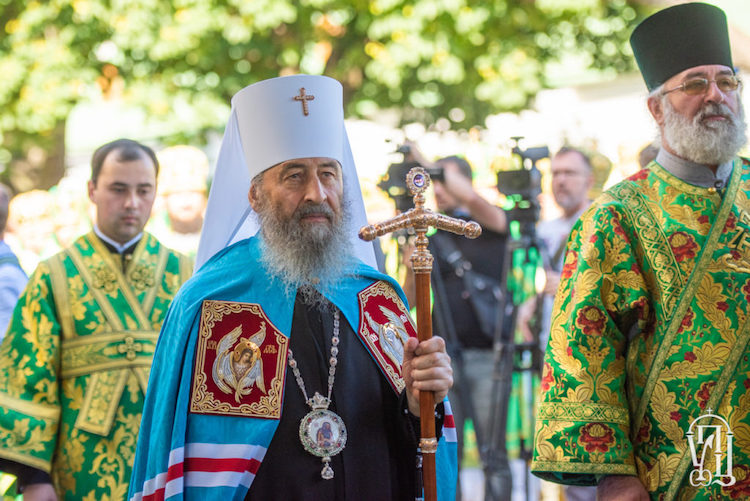
The recognition of the OCU by two Local Orthodox Churches made a split in Orthodoxy accomplished. The Churches began to fall into into those that recognize the primacy of Constantinople and, accordingly, its right to act contrary to the canons, and those that reject it. To heal this split, it is no longer enough for Phanar to only admit its mistake of interfering in church affairs in Ukraine. It is already necessary to rethink the whole concept of the relationship of the Local Churches with each other.
7. Invitation of Primates of the Local Orthodox Churches to the Council
On November 21, the Primate of the Jerusalem Orthodox Church, Patriarch Theophilos III, announced that he was convening the Primates of the Local Orthodox Churches to meet in Jordan in order to resolve the issue of how to maintain the shaken unity of the Orthodox Church.
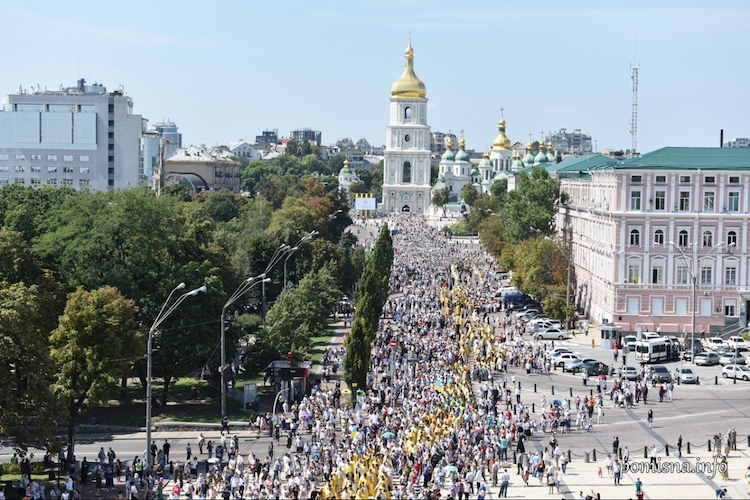
A lot of hierarchs have repeatedly called on Patriarch Bartholomew of Constantinople to convene such a meeting but they left empty-handed . Despite the fact that the church canons do not specify the procedure for convening such pan-Orthodox meetings, some primates began to claim that only the Patriarch of Constantinople could supposedly convene such a synaxis.
Time will tell if the Local Orthodox Churches will respond to the call of Jerusalem Patriarch Theophilos III. So far, only the Church of Greece has declared that it will not be able to take part, since it is not the Patriarch of Constantinople who convenes it.
According to representatives of the Moscow Patriarchate, a Synaxis of Primates in Jordan may take place in February 2020.
8. UN involvement in the defense of the UOC community in Ivano-Frankivsk
On November 22, the UN Human Rights Committee ordered Ukraine not to evict the UOC community from its own building in Ivano-Frankivsk at 6 and 6B Chornovola St. This is the first top-level decision in favor of the believers of the UOC, whose rights are violated by the state. The decision expressly prescribes the state authorities of Ukraine to stop the eviction process.
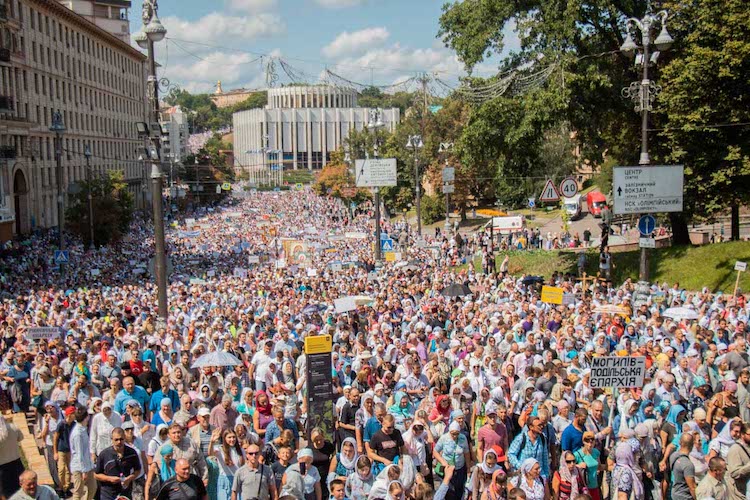
Litigation for this temple has been going on for many years. Decisions on these cases were made in favor of one or the other. On October 15, 2019, the Lviv Economic Court of Appeal ordered the believers to vacate the rented premises. However, the human rights organization NGO Public Advocacy appealed to the UN Human Rights Committee, which adopted the relevant resolution.
The UN rarely makes decisions on specific conflicts. But if it does, the decision remains in all databases, analytical systems, and all structures conduct monitoring the state of human rights in the country on the basis of this resolution. Ukraine will not be able to ignore this decision without the corresponding consequences at the international level.
* * *
All these events will influence how the situation in the religious sphere of Ukraine is going to evolve in the future.
But the most important thing in the past year was that the Ukrainian Orthodox Church was able to survive as such and continue its salvation mission on the Ukrainian land.
Contrary to the assumptions of both Phanar and the state authorities, contrary to the victorious reports of Epiphanius Dumenko and his supporters, despite the pressure and threats, not a single bishop left the UOC in 2019, and there were only 84 transitions of the community to the OCU. Of these, 28 communities joined the OCU without a rector, 56 did it with a rector, and another 122 temples were subject to raider seizure by the OCU actors. In addition, 220 communities were illegally reregistered by the local authorities in favour of the OCU. These data were voiced by the UOC Chancellor, Metropolitan Anthony (Pakanich) of Boryspil and Brovary. This is clearly not what the adepts of the OCU project had expected when launching its implementation.
The main thing is that the Ukrainian Orthodox Church was able to survive as such and continue its salvation mission on the Ukrainian land.
What prevents the episcopate, clergy and believers from the temptations to pass to the OCU? It seems that it is the awareness of the fact that the truth is on our side, that the Church of Christ is the Ukrainian Orthodox Church, and to betray it means to voluntarily leave the ship of salvation, which is the only possible means on the way to salvation for the eternity.
The quintessence of this consciousness was voiced by His Beatitude Onuphry on December 23, 2019, at the annual diocesan meeting of the Kiev Eparchy of the UOC: “Beloved in Christ hierarchs, fathers, matushkas, brothers and sisters! Do not be afraid, because we are in the true faith, we are in the Church founded by Christ, not by people.”
This is precisely what will determine the overall future course of events both in Ukraine and entire Orthodoxy.











